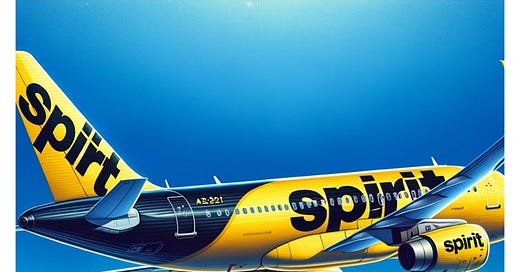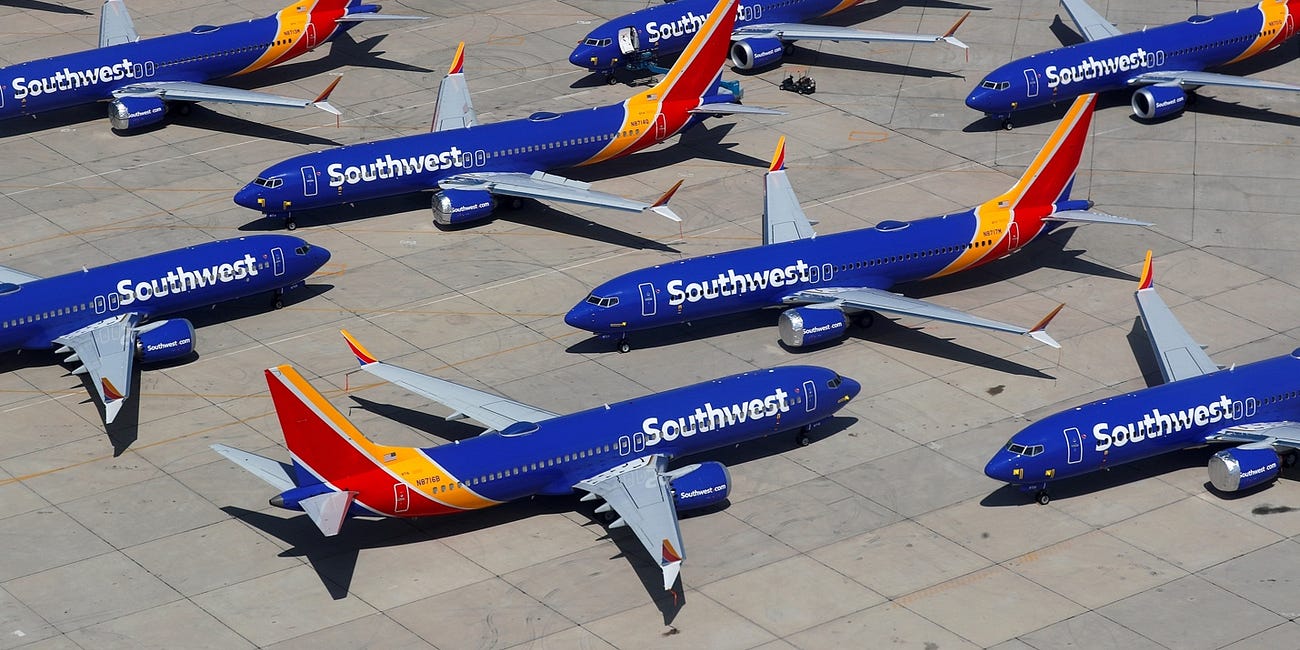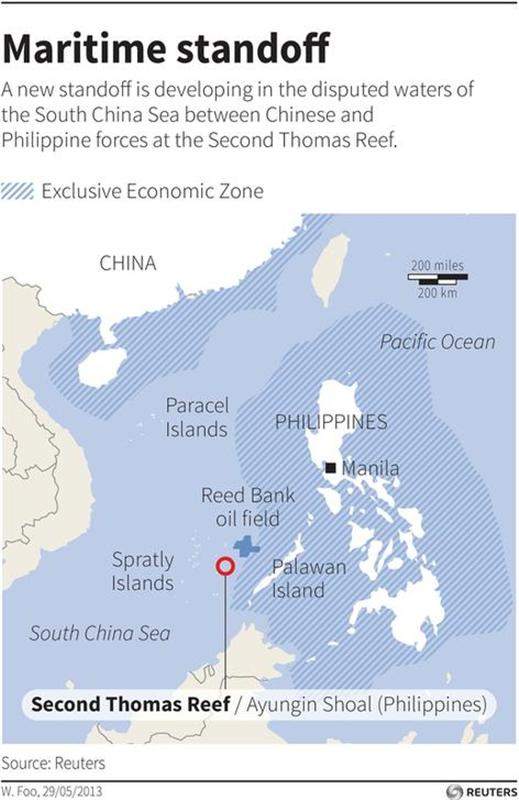Since the pandemic, air travel has been even more unpleasant than usual. The cause goes back even further, to 1978, when the federal government deregulated the airlines. The current industry is made up of four giant firms that are the product of decades of mergers. They operate their routes like the mob divides up territory, granting de facto regional monopolies, avoiding fare competition. A few weeks ago, the merger of JetBlue and Spirit was blocked to prevent further airline consolidation. An article from BIG further expands on the subject:
“The airline industry,” wrote Boston-based Judge William Young yesterday in an opinion blocking JetBlue’s attempted acquisition of Spirit Airlines, “is an oligopoly that has become more concentrated due to a series of mergers in the first decades of the twenty-first century, with a small group of firms in control of the vast majority of the market.”
Ten years ago, only a very aggressive liberal judge with deep historical knowledge would have the confidence to write something like this. Today, recognizing America is in a monopoly crisis has become conventional wisdom, so much so that this judge, an 82 year-old Ronald Reagan appointee, openly talked about the effects of this concentration problem in a merger opinion blocking a deal between two relatively small airlines. And no one batted an eye. That is a stunning intellectual turnaround from an era where consolidation was considered a way to foster efficiency and better corporate behavior.
As airline expert William McGee noted, it’s often overheated to assert that something is unprecedented, but in the case of this decision, it’s true. The judge’s order represent the first time the Antitrust Division and Department of Transportation have stopped an airline combination since deregulation in 1978. On a practical level, this challenge is also one of several moves that are leading to lower airfares, first over the holiday season as BIG covered, and now potentially for this upcoming year. So why were JetBlue-Spirit trying to merge? Why did the government try to stop it? And why did this conservative judge block the merger?
Let’s start with the merger. Since Covid, what happened in the airline industry is known as the ‘bullwhip’ effect, where industries overcorrect several times in response to a shock. In 2020, there was no demand for air travel because of the pandemic. Leaders of the highly concentrated airlines industry, despite getting bailout money to maintain airline infrastructure, believed the situation was permanent, and so sought to do voluntary buy-outs of pilots and other staff, getting around the legislative efforts to maintain the air system. As a result, when demand snapped back, airlines, while they faced huge logistical challenges, also had a lot of pricing power, and became immensely profitable. But because they had to cancel a lot of flights, airlines sought to increase capacity by bringing on new pilots and trying to buy new planes as quickly as possible. As that capacity came online, they began to compete once again for customers, and that is finally causing airfares to drop.
Airline CEOs don’t like it when fares drop due to competition. The typical industry practice when prices begin coming down is to merge and collectively cut capacity. For instance, over the last couple of decades, Delta bought Northwest, United bought Continental, American bought TWA, America West, and U.S. Air, Southwest bought AirTran, and Alaska bought Virgin America. This constant state of consolidation has led to a tight oligopoly, with just four trunk airlines running 80% of flights nationwide.
The goal of JetBlue in buying Spirit was, as per industry practice, to eliminate industry capacity, allowing the whole industry to maintain higher prices. The problem is that merging with a competitor so as to increase prices is flat-out illegal. And you don’t need to take my word for it, the board of Spirit Airlines had publicly encouraged shareholders to reject the deal because they thought, correctly, it wouldn’t pass muster with enforcers.
But the CEO of JetBlue, Robin Hayes, just could not believe that the Department of Justice would actually challenge a merger. After all, the government, prior to this administration, had always settled with merging airlines, and this lax government attitude led directly to the rise of the big four. So why would the DOJ turn around now and go after the sixth and seventh largest firms when they combined? The answer to this question, as BIG readers know, is that policymakers now realize there’s a monopoly crisis, and believe that allowing consolidation in the first place was a mistake. But Wall Street and corporate America, and men like Hayes, just couldn’t bring themselves to believe the environment has changed.
This suit is the second antitrust loss that JetBlue has incurred of late. The first was last year, when the Department of Justice forced the end of the Northeast Alliance joint venture with American Airlines. In that case, a different Boston judge, Leo Sorkin, argued in his order nullifying their combination that JetBlue and American Airlines had removed competition from the market by combining forces through a joint operating agreement. (American Airlines is appealing.) Sorkin had aggressive words for expert consultants, and like Young, discussed the broad concentration crisis in the airlines. The net effect of these losses inside the airlines is fascinating, with Spirit looking for a new strategy now that their attempt to combine with a larger firm has failed, and Hayes simply stepping down from his role as CEO of JetBlue.
projections for lower ticket prices in 2024 may not pan out this year, as the Boeing 737 Max flight groundings constrain capacity across the industry.
Nonetheless, while I do appreciate the end of consolidation in airlines, air travel is not a standard business. In high capital cost transportation industries like shipping, air travel, rail, and trucking, firms with a lot of sunk investment have an incentive to price their product below cost in hopes of being the last man standing, which is something known as ‘ruinous competition.’ Such boom and bust cycles do actually drive bankruptcy and then consolidation, until there is private price-setting above the cost of capital via monopolization. Of course, in such a system, you don’t have a universal service, and since deregulation, regional air service has been gutted, as one would expect.
The ultimate solution here is to have the government regulate routes and pricing, as I wrote in August of 2022. You can’t just hope competition will win out in an unregulated industry, the result will be mal-investment, bankruptcies, consolidation, and then mass bailouts.
Nevertheless, this merger was obviously illegal, and it’s good that airlines are going to have a much tougher time consolidating going forward. Now comes the national discussion to actually build a healthy air grid, and turn away from the deregulation that has brought us so much trouble.
BIG
See:
The Origins of the Southwest Airlines Fiasco
Tl;dr · The widespread Southwest Airlines delays and cancellations over the holidays are part of a broader trend of system crashes, ranging from the airlines, to supply chains, to the US healthcare system · Many of these issues can be traced to free market reforms going back fifty years called
News
FLASH US strikes Iranian proxies in Iraq and Syria in response to fatal drone strike
1a Trouble on the High Seas
1b China and Philippines risk catastrophe in South China Sea
1c Red Sea shipping volume has dropped 29% since US began military operations
2 Al Qaida resurgent in Afghanistan
3 Feds give former CIA contractor 40 years for 2016 data dump to WikiLeaks
1a Trouble on the High Seas
The modern economy rests on a rule so old that hardly anybody alive can remember a time before it: Ships of any nation may sail the high seas. Suddenly, that pillar of the international order shows signs of buckling. In the Red Sea, Houthi rebels have stormed onto cargo ships, causing freight rates to quadruple and setting a precedent that American vessels aren’t welcome across one of the world’s most vital transport lanes. Russia’s invasion of Ukraine has turned the Black Sea into a gauntlet of warships and mines, navigated by grain-laden bulk carriers sailing under the fragile consent of two warring states. Near the Horn of Africa or the Strait of Malacca, pirates who had once seemed quelled have roared back, crimping sea traffic. In the South China Sea, Beijing has asserted sovereign control over parts that have long been international waters, while its push to reunite Taiwan with the mainland raises questions about future transit through the Taiwan Strait.
WSJ
1b China and Philippines risk catastrophe in South China Sea
Satellite images recently released by Maxar reveal the extent to which tensions continue to rise in the South China Sea between the Philippines and China over a strategically important reef. Chinese coastguard vessels are shown blocking access to a Philippines military base on the reef, known internationally as Second Thomas Shoal and by China as Rén’ai Jião. Second Thomas Shoal – which lies within the Philippines’ Exclusive Economic Zone 200km west of the archipelago and 1,000km from the nearest Chinese landmass – has been occupied by the Philippines since the 1990s. But the reef, which Manila calls Ayungin Shoal, has been a flashpoint for a decade, as Beijing continues its campaign to assert territorial control over the South China Sea. Tensions rose sharply in December 2023 when the Philippines undertook an operation to reinforce and resupply a contingent of its marines stationed aboard the BRP Sierra Madre, an ageing tank-landing ship that the military deliberately ran aground on the reef in 1999 to serve as a base. In a show of force, some 11 Chinese coastguard and maritime militia vessels were seen within the lagoon intercepting supply missions to the Sierra Madre.
Chatham House
Ed. Note: The US has a defense treaty with the Philippines. If they claimed attack from China, even due to an accident, the US would be legally obligated to defend them (ie go to war with China). In my opinion, this is much more likely/dangerous than a conflict over Taiwan.
1c Red Sea shipping volume has dropped 29% since US began military operations
Despite U.S., U.K. bombardment, Houthi attacks in Red Sea have accelerated. The Houthis have launched nine attacks on ships in the past three weeks, compared with six in the previous three weeks. Since Jan. 11, when the U.S. began a counteroffensive, shipping on the Red Sea trade route has dropped by 29 percent.
Cipher Brief
2 Al Qaida resurgent in Afghanistan
A new United Nations report warns that al-Qaida has established eight new training camps in Taliban-ruled Afghanistan and is increasingly assisting anti-Pakistan militants to launch cross-border attacks. The report said an al-Qaida camp in the Afghan border province of Kunar is "conducting suicide bomber training" to support operations of Tehrik-i-Taliban Pakistan, or TTP, a globally designated terrorist group leading attacks against Pakistani security forces.
Voice of America
3 Feds give former CIA contractor 40 years for 2016 data dump to WikiLeaks
A former CIA computer engineer was sentenced to 40 years in prison for the CIA’s biggest ever data leak, federal prosecutors announced Thursday. Joshua Schulte was charged with transferring massive quantities of classified data to WikiLeaks in 2016 and convicted in 2022 of illegally gathering and transmitting national defense information and obstructing a criminal investigation and grand jury proceeding. Axios reported that much of the material leaked was insignificant, such as instruction manuals for outdated hacking tools. Schulte was also convicted last year on child pornography charges. While working for the CIA’s Center for Cyber Intelligence, he created cyber tools to extract data from computers without being detected.
Cipher Brief
Media
True Detective: Night Country is currently scaring the bejesus out of me.
https://www.rottentomatoes.com/tv/true_detective/s04
There you have it, the twenty-second edition of Sunday Digest featuring the humbling of an airline, more pirates, and CIA revenge. The portrait of a world spinning faster and faster. The good news is you have Netflix, Uber Eats, and running water. Until next time, be a good citizen, quit doomscrolling, and go outside.
Ad Astra Per Aspera!
[i] UKMTO








